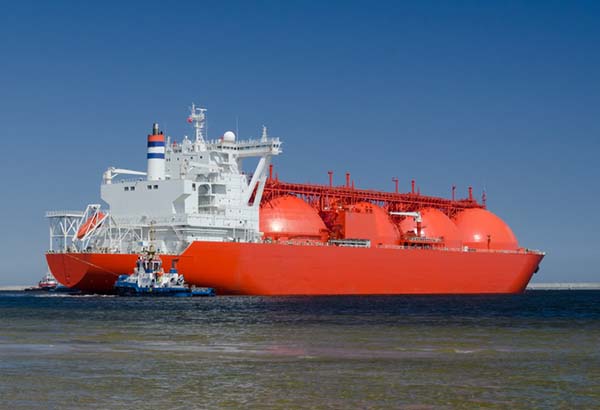
Risk Management Training Courses
Empowering Professionals to Anticipate, Mitigate, and
Navigate Uncertainty with Comprehensive Risk Management Courses




Corporate Governance & Risk Management for State & Public Sector Organisations


Corporate Governance, Regulations & Compliance Enforcement in Downstream & Midstream Industries













Corporate Governance & Risk Management for State & Public Sector Organisations
Risk Management Training Courses
Risk management is critical for professionals across various industries, ensuring any organization’s stability and long-term success. Our Risk Management Training Courses are designed to equip participants with the tools and techniques to identify, assess, and mitigate potential risks that could affect their business. These Risk Management courses cover a wide range of topics, from enterprise risk management to financial risk analysis, ensuring that participants gain comprehensive insights into strategic and operational risk factors.
Our Risk Management Training Courses are tailored to meet the needs of professionals at all levels, whether you are just starting in risk management or are a seasoned practitioner looking to refine your skills. Led by industry experts with real-world experience, our Risk Management Courses offer a balance of theory and practical application, helping participants understand how to implement risk management frameworks, perform risk assessments, and develop effective risk mitigation strategies. Participants will also gain exposure to case studies and best practices from leading organizations worldwide.
By enrolling in our Risk Management Training Courses, professionals will be better equipped to safeguard their organizations from potential threats and uncertainties. With flexible learning options, including classroom, online, and in-house training, we provide a dynamic learning environment to suit individual needs. Whether focused on corporate governance, project risk, or financial risk, our courses will empower you to make informed decisions, reduce vulnerabilities, and enhance overall business resilience.
Risk Management Training Courses are also available in the following cities:
- Risk Management training courses in London
- Risk Management training courses in Amsterdam
- Risk Management training courses in Barcelona
- Risk Management training courses in Dubai
- Risk Management training courses in Abu Dhabi
- Risk Management training courses in Abuja
- Risk Management training courses in Accra
- Risk Management training courses in Casablanca
- Risk Management training courses in Doha
- Risk Management training courses in Geneva
- Risk Management training courses in Houston TX
- Risk Management training courses in Istanbul
- Risk Management training courses in Kigali
- Risk Management training courses in Kuala Lumpur
- Risk Management training courses in Lisbon
- Risk Management training courses in Marrakech
- Risk Management training courses in Milan
- Risk Management training courses in Munich
- Risk Management training courses in Paris
- Risk Management training courses in Riyadh
- Risk Management training courses in Singapore
- Risk Management training courses in Pretoria
- Risk Management training courses in Khamis
- Risk Management training courses in AlUla
Frequently Asked Questions
PetroKnowledge’s Risk Management training courses are specifically designed to address the unique challenges faced by professionals in the oil and gas industry. These courses teach participants how to identify, evaluate, and manage risks that are particularly prevalent in this high-stakes industry, including operational, environmental, and financial risks. The goal is to equip oil and gas professionals with the skills needed to protect assets, enhance safety, and ensure business continuity.
A Risk Management training course typically covers essential topics like risk identification, assessment, and mitigation strategies. It includes tools and techniques for managing financial, operational, strategic, and compliance-related risks across various industries. Participants also learn how to create and implement risk management plans to minimize the impact of potential threats on business operations.
Our training courses is tailored for oil and gas professionals, including project managers, HSE (Health, Safety, and Environment) officers, engineers, finance teams, and executive decision-makers. Risk Management training would benefit anyone responsible for mitigating risk in exploration, production, or downstream activities. It's also ideal for professionals involved in compliance, safety management, and crisis response within the oil and gas industry.
Risk Management training courses typically include key topics such as identifying and assessing risks, risk response planning, implementing mitigation strategies, risk monitoring, compliance with regulations, and integrating risk management into decision-making processes. More advanced courses may delve into specific areas like crisis management, financial risk, or cyber risk.
Risk Management training teaches professionals how to identify regulatory risks and ensure that their organizations are complying with relevant laws and standards. This includes understanding industry regulations, staying current with legal changes, and implementing procedures to avoid fines or penalties.
PetroKnowledge’s courses are designed to help oil and gas professionals navigate complex regulatory landscapes by teaching them how to identify and manage regulatory risks. Participants learn how to implement industry best practices, ensuring compliance with environmental regulations, safety standards, and international guidelines, thereby protecting their companies from legal penalties and operational shutdowns.
Attendees gain practical skills that can help them identify and mitigate risks before they become major issues, improve business resilience, and ensure better decision-making under uncertainty. This knowledge helps organizations save money, avoid disruptions, and maintain compliance with industry standards and regulations
By attending PetroKnowledge’s Risk Management training courses, oil and gas professionals will gain the tools to minimize the likelihood of costly incidents and operational downtime. Participants will also enhance their ability to create strategic risk management frameworks that align with industry standards, ensuring safer, more efficient operations. Ultimately, this training contributes to financial stability and compliance with industry regulations.





















